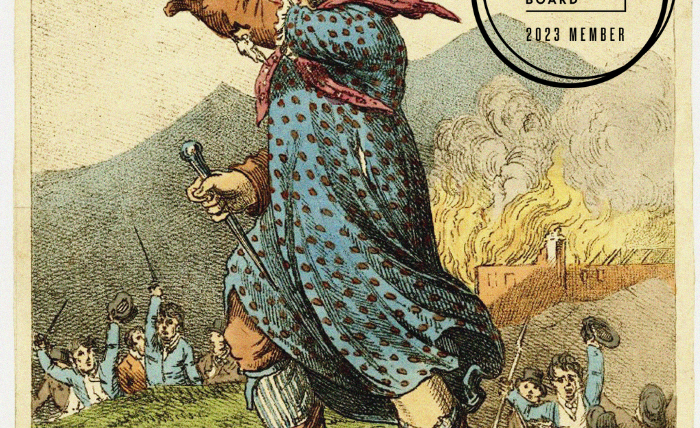Hindsight resonates just as profoundly in our personal lives. My companion piece expands on the idea that the way we think about the past can be inaccurate and how longing for “the good old days” can prevent us from seeing the joy available today.
This article was originally published by Fast Company.
“If I had known how it was going to turn out, I would have done it differently.”
You have likely said or at least thought this. You made the best decision you could with the information you had at the time, but it was the wrong decision. Knowing what you know now, you would have made a different decision. Hindsight is 20/20.
“I didn’t understand until later that even though it was hard, it was really good for me.”
Hopefully, you have also said something like this. You were challenged to stretch into an area that wasn’t comfortable, or you went through a rough period of life. You didn’t understand it at the time, but that difficulty led to some even better things later. Hindsight is 20/20.
But is it always?
While it may seem that examining the past offers a perfectly clear understanding of previous events, remember that this retrospective view is often clouded. I would argue that not only does hindsight fail to provide true clarity, but it also can hinder your ability to grow, or even lead you astray.
Here are three errors many people make when thinking about the past:
1. “THOSE WERE THE DAYS”
There is a psychological phenomenon documented by researchers that shows how over time we tend to forget negative memories and remember positive ones. This is why people talk about how great things were during their childhood compared to now. This also shows up in business.
I recently had a conversation with someone who has worked in our business for several years. The conversation went something like this:
“The business used to be so much easier,” he said. “We have so many competitors now, and there is so much price pressure. It’s difficult to stand out.”
There was a lot of truth in his statement. There are many new entrants into our market, and differentiation has become more difficult. However, I reminded him of some things he had forgotten.
“Yeah, but remember how hard it was for us to sell our services because no one knew what we were doing? No one understood what we did, and we barely had any referenceable accounts. Now, we sign up more customers in a month than we used to sign in a year.”
Instead of longing for the “good old days,” remembering the difficulties of the past and how you overcame them can give you the confidence you need to overcome today’s unique set of challenges. As a leader, make sure you tell the stories of not just your past successes, but also your challenges and even failures.
2. “THERE HAS NEVER BEEN A TIME LIKE THIS”
If I had a dollar for every time I’ve heard the word “unprecedented” since March 2020, I’d, well, have a lot of dollars. The problem is that virtually everything has a precedent.
Global pandemic? Yes, we’ve had those. Social unrest? Lots of it. Highly disruptive technology, shifting societal values, violent clashes between people and groups with incompatible world views? Check, check, check.
The things we experience today may look a little different and have distinct characteristics, but they share the same basic traits of events that have happened again and again — especially in their impact on people.
As a leader, it is important to fight the urge to buy into the sensationalism of “unprecedented.” If you consider a challenge truly unprecedented, then there are no lessons to be learned from others that may help you find solutions. You are completely on your own.
Instead, remember the challenges you face are just new verses in a song that has been sung over and over for generations. The great rhythms of life never change. Learning the lessons of the past can help you navigate the challenges of the future.
3. “I REMEMBER IT WELL”
Recently, I was telling a story to a group of newer work associates about something that happened in our business many years ago. I love telling these kinds of stories because it helps people gain the context to understand our culture and strategy.
After the session, one of my colleagues whom I have worked with for many years came up to me and said, “That’s not how that happened.”
He went on to give me his version of the story I had told. As he spoke, I realized that based on his role at the time, he had experienced the situation completely differently than I had. He recalled several details that I had forgotten or never knew. As a result, what he had taken away from the event was different.
The interesting thing for me was that his version contained an even better lesson. But because I was focused only on what I had experienced, I missed much of the wisdom that could have been gained.
Personal memories lack the perspective of the whole. You remember how hard you worked and what you had to overcome, but often, you forget what other people did to prop you up or help you out. You don’t remember or even realize the hurt you may have caused others or the challenges you put in their paths. If you are to truly learn from history, you must consider events from every perspective.
It is vital that leaders look to the past for clues about how to address the challenges of the present. But if you aren’t careful, imperfect memories clouded by your current perspective can send you in the wrong direction. As a leader, take the time to discuss the past with others who can help you improve your hindsight.


